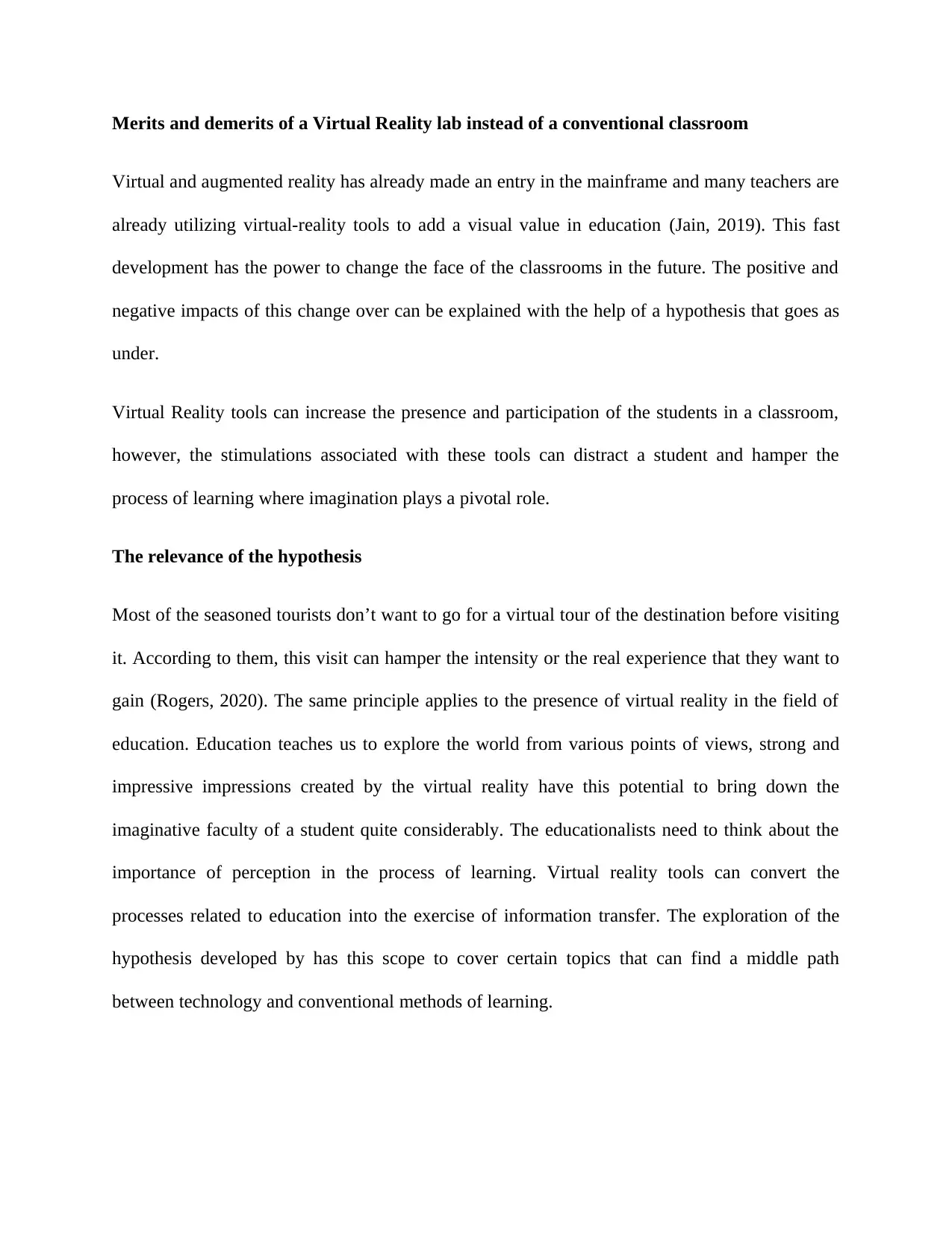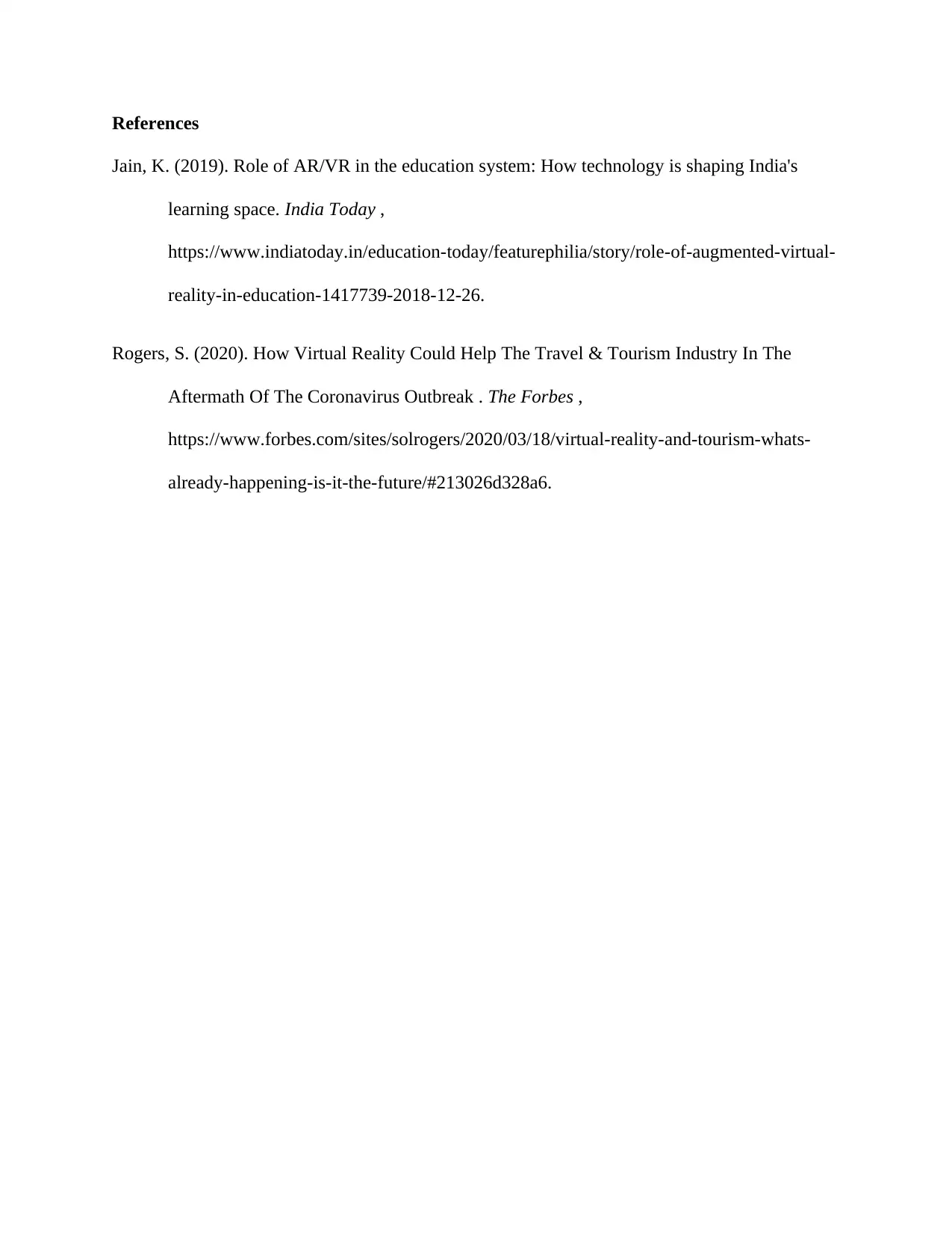Evaluating the Role of Virtual Reality in the Education System
VerifiedAdded on 2022/09/18
|2
|360
|117
Report
AI Summary
This report examines the impact of virtual reality (VR) in education, focusing on its merits and demerits. It explores how VR tools can enhance student engagement and participation while acknowledging the potential for distraction and the importance of imagination in learning. The report references studies and articles to support its arguments, discussing the role of VR in shaping the future of classrooms and the balance between technological advancements and conventional learning methods. It addresses the need to consider the impact of VR on students' perception and the potential for it to transform education into a mere process of information transfer. The analysis suggests that while VR offers innovative possibilities, educators must carefully consider its implementation to ensure that it complements rather than diminishes the core principles of education.
1 out of 2





![[object Object]](/_next/static/media/star-bottom.7253800d.svg)